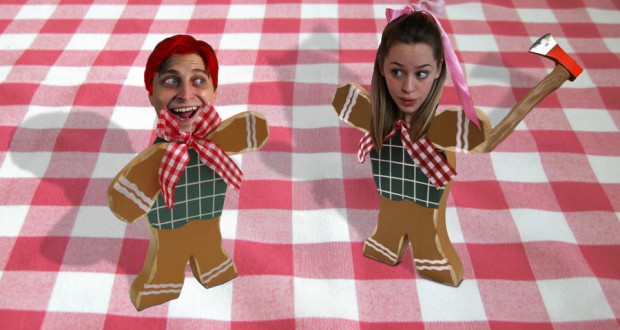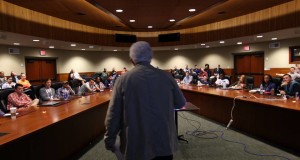Remember how Jesus said, “Love your enemies?” The same has to be true for those characters you hate when you write a novel.
I’ve been watching a lot of Lost on Netflix with my wife lately. We’re absolutely hooked on this show. I’ve never watched it before, but now I understand why everyone used to rave about it.
The thing that makes this show so good, besides all the intertwining story lines and excellent little mysteries at every turn, is that the characters are so rich with complexity. There’s rarely a character that you full-on hate without any redeemable quality (I can think of only John Locke’s father in that category). There are heroine addicts, con artists, a woman who killed her father, a doctor with anger management issues, an alcoholic father, a cowardly Scotsman and on and on, and yet every one of them has at least a little something that makes audiences love them and cheer for them.
The same needs to be true of the story’s enemies; the villains.
With JUMP, I’m not exactly dealing with enemies yet. Eventually Christopher will get involved with a dangerous cult, but I haven’t written those scenes so far. But throughout his journey, Christopher will become involved with churches with either humanistic or shallow preaching. Preaching that is self serving and ambitions that place God second. But the danger I’m running into is that some of these characters are becoming too easy to hate. There’s a youth pastor who will impregnate a 17-year-old high school girl who was appointed to his care. There’s a mega-church pastor who is more interested in building the largest mega church in Western Pennsylvania that he totally misses the need of his own congregation. There’s a college student who prostitutes her own 16-year-old sister at a college party for personal entertainment. There’s a father who terrorizes his son throughout his youth.
It’s easy to hate these characters. So I need to challenge myself, my own simple conclusions, and bring rich complexity to these individuals. They need to become human, both in my eyes and in my readers’ eyes, otherwise the whole novel becomes cheap.
Find something you love and inject them into their personalities. That’s what I’m going to have to do in my revision.
I truly believe that fiction can often be used to instruct and challenge reader’s thoughts and emotions. Fiction is a great real for personal growth and reflection. But when the novel’s antagonists are nothing more than cartoon villains, then we might as well draw caricatures and political toons instead of novels. Cheap victories are not worth winning. Making enemies into straw men only helps improve our shadow-boxing skills. We have to be discerning, even in fiction. We have to be fair.
But first we need to write. That’s why I’m so excited and eager to finish the first draft of JUMP. Because first, I just want to put the story down. I usually don’t work this way, but in this particular case, I don’t want to loose sight of the message streaming through the novel: that theology matters. But I won’t write that novel at the expense of cheap attacks and flat characters. That’s why I tend to prefer character based fiction over plot-based. Unfortunately, I’ve kind of forced myself into this mold now, and it’s too late to start over. But it’s never too late to revise.
So once the first draft is over, I want not only my friends to review the story, but the very people I’ve criticized. I want them to challenge me and my assumptions. Then I can go back and bring humanity back into those secondary characters who were so easy to flatten to the page.
If I expect this novel to challenge fellow Christians to view the importance of Theology in a new light, then I need to challenge my own assumptions.
I’ll tell you, this is one of those novels that I’ve been most afraid to finish. I haven’t written much in my career, but I’m worried that this novel may create more enemies than friends. And I don’t want that. But if this novel creates enemies, I want to be able to view every one of them with love, just as the very characters I’ve created.
I think, tomorrow, I will write a list of ways to make a character lovable.
(Feature photo by ChrissieCool)
What about you?
What methods do you use to add complexity to your story writing?
 Michel Sauret – Award-Winning Army Journalist | Independent Author Award-Winning Army Journalist, Independent Author
Michel Sauret – Award-Winning Army Journalist | Independent Author Award-Winning Army Journalist, Independent Author







One comment
Pingback: How to make evil characters complex | Michel Sauret – Award-Winning Army Journalist | Independent Author